Home > News > The Prime Minister in Action > June 2014 > The Prime Minister Visits Keio University Hospital
The Prime Minister Visits Keio University Hospital
Tuesday, June 10, 2014
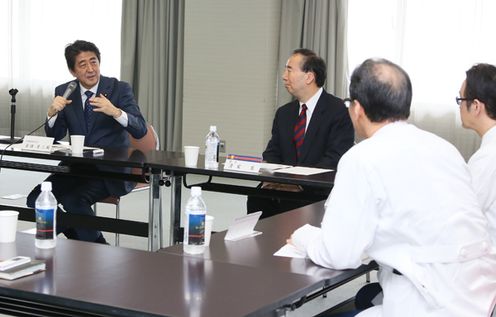
Photograph of the Prime Minister receiving an explanation on cutting-edge medicine (1)
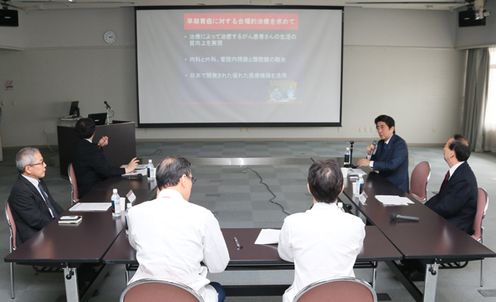
Photograph of the Prime Minister receiving an explanation on cutting-edge medicine (2)
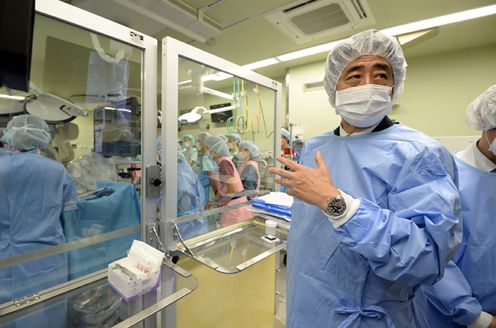
Photograph of the Prime Minister touring a state-of-the-art operating room (1)(taken by the representative photographer)
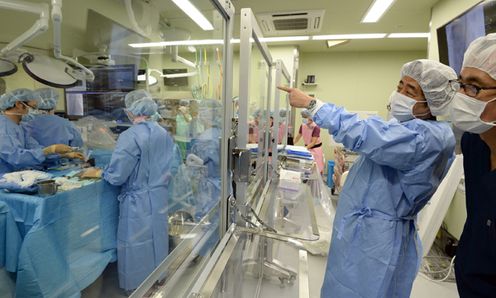
Photograph of the Prime Minister touring a state-of-the-art operating room (2)(taken by the representative photographer)
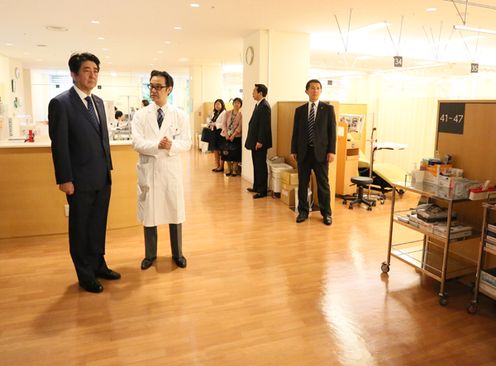
Photograph of the Prime Minister touring the Immunology Integrated Medical Care Center (1)
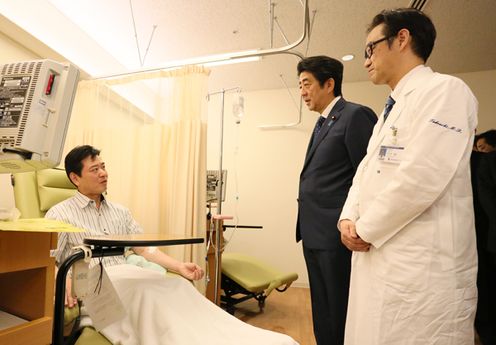
Photograph of the Prime Minister touring the Immunology Integrated Medical Care Center (2)
Prime Minister Shinzo Abe visited Keio University Hospital and observed practices at the forefront of cutting-edge medicine.
Upon receiving an explanation on cutting-edge medicine, the Prime Minister toured a state-of-the-art operating room and the Immunology Integrated Medical Care Center.
Following the tour, the Prime Minister said in his address,
"Today, during this visit, I had an opportunity to listen to doctors and also speak with patients. Our conversations once again reinforced in me the need to be fully aware that there are patients battling difficult-to-treat illnesses who strongly wish to receive cutting-edge medicine while at the same time minimizing and controlling their medical expenses as much as possible.
This morning, I assembled Minister Tamura and Minister Inada and instructed them to develop a new patient-oriented scheme.
More specifically, I have decided to newly establish a system for medical treatment that originates in patients' requests, which will allow for a combination of medical treatments that are covered by insurance and those that are not, based on the requests of patients battling difficult-to-treat illnesses.
We will drastically reduce the time spent on reviewing the medical treatments eligible under this system, while still verifying the safety and effectiveness of such treatments. Furthermore, while facilities like Keio University Hospital will be the main providers of these medical treatments, the new system will operate flexibly to allow patients to also receive cutting-edge medicine at medical clinics that are closer to their homes.
In order to realize such a scheme, we will work to submit and pass the relevant bills during the next ordinary session of the Diet.
In addition, once the safety and effectiveness of the medical treatments are ascertained, they will ultimately be covered by insurance under the universal healthcare system.
By creating this new patient-oriented medical treatment system, we will develop ways through which patients can receive the necessary treatment more quickly while alleviating the cost burden. We also hope this will allow patients to receive treatments at more convenient locations."





